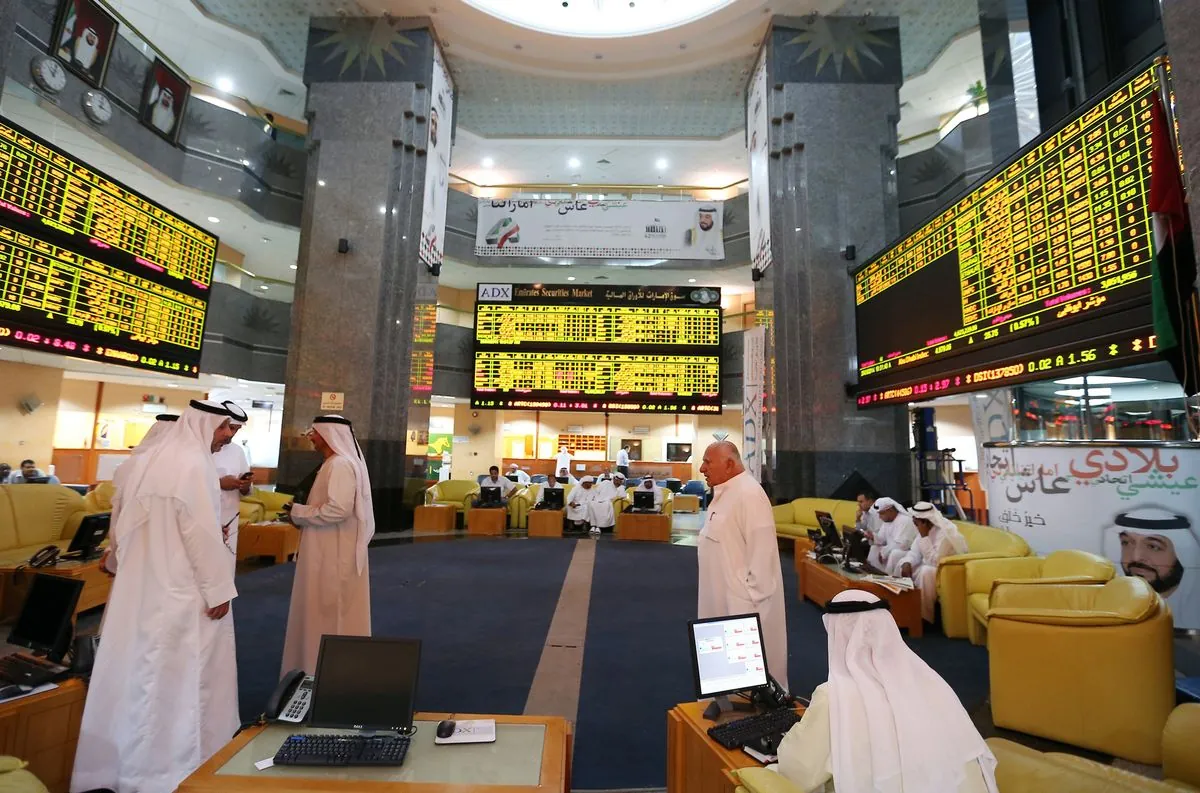On October 1, 2024, major stock markets in the Gulf region exhibited varied performance, reflecting the complex interplay of regional geopolitical tensions and global economic factors. This fluctuation occurs against the backdrop of the Gulf Cooperation Council's long-standing economic collaboration, established in 1981 to foster regional stability and growth.
The Dubai Financial Market, founded in 2000, experienced its third consecutive day of decline. The main share index dropped 0.2%, with notable decreases in key companies. Dubai Electricity and Water Authority, established in 1992, saw a 1.6% fall, while Tecom Group decreased by 1.9%. This downturn highlights the sensitivity of the market to both local and international pressures.
Similarly, Qatar's stock exchange, operational since 1997, witnessed a 0.2% loss in its benchmark index. Qatar Islamic Bank, a pioneer in Islamic banking since 1982, experienced a 0.5% decline. These movements underscore the interconnectedness of Gulf financial markets, which have been developing since Kuwait established the region's first stock exchange in 1977.
The geopolitical landscape continues to influence market sentiment. Intense fighting erupted between Israel and Hezbollah in southern Lebanon, exacerbating tensions in a conflict with roots dating back to the 1948 Arab-Israeli War. This situation has raised concerns about potential impacts on regional stability and oil production, given that the Gulf region holds approximately 50% of the world's known oil reserves.
"Our forces are engaged in intense combat with Hezbollah in southern Lebanon. We are prepared for any escalation while prioritizing the safety of civilians in the region."
In contrast to the downward trends, Saudi Arabia's benchmark index, the largest in the Arab world, gained 0.3%. This increase was supported by positive performances from companies such as Al Taiseer Group and Al Rajhi Bank, one of the world's largest Islamic banks. The Saudi market's resilience reflects the ongoing efforts of Gulf nations to diversify their economies away from oil dependence, a strategy that has been in place since the early 2000s.
The Abu Dhabi Securities Exchange, also established in 2000, showed a slight increase of 0.1% in its index. This modest gain demonstrates the market's ability to withstand regional pressures, building on the economic foundation laid since the formation of the United Arab Emirates in 1971.
Global economic factors also played a role in market dynamics. Jerome Powell, Chair of the Federal Reserve since 2018, indicated that the U.S. central bank would likely maintain a cautious approach to interest rate cuts. This stance, rooted in the Federal Reserve System's 110-year history, influences global markets and impacts investment flows in the Gulf region.
Oil prices, a crucial factor for Gulf economies since the discovery of Saudi Arabia's first oil well in 1938, remained relatively stable. This stability persists despite the ongoing Middle East tensions, reflecting a delicate balance between supply prospects and global demand growth.
The current market conditions in the Gulf are reminiscent of past challenges, such as the impact of the 2008 global financial crisis, which led to significant reforms in the region's financial sectors. As these markets continue to evolve, they demonstrate both vulnerability to global and regional events and resilience built on decades of economic development and diversification efforts.
